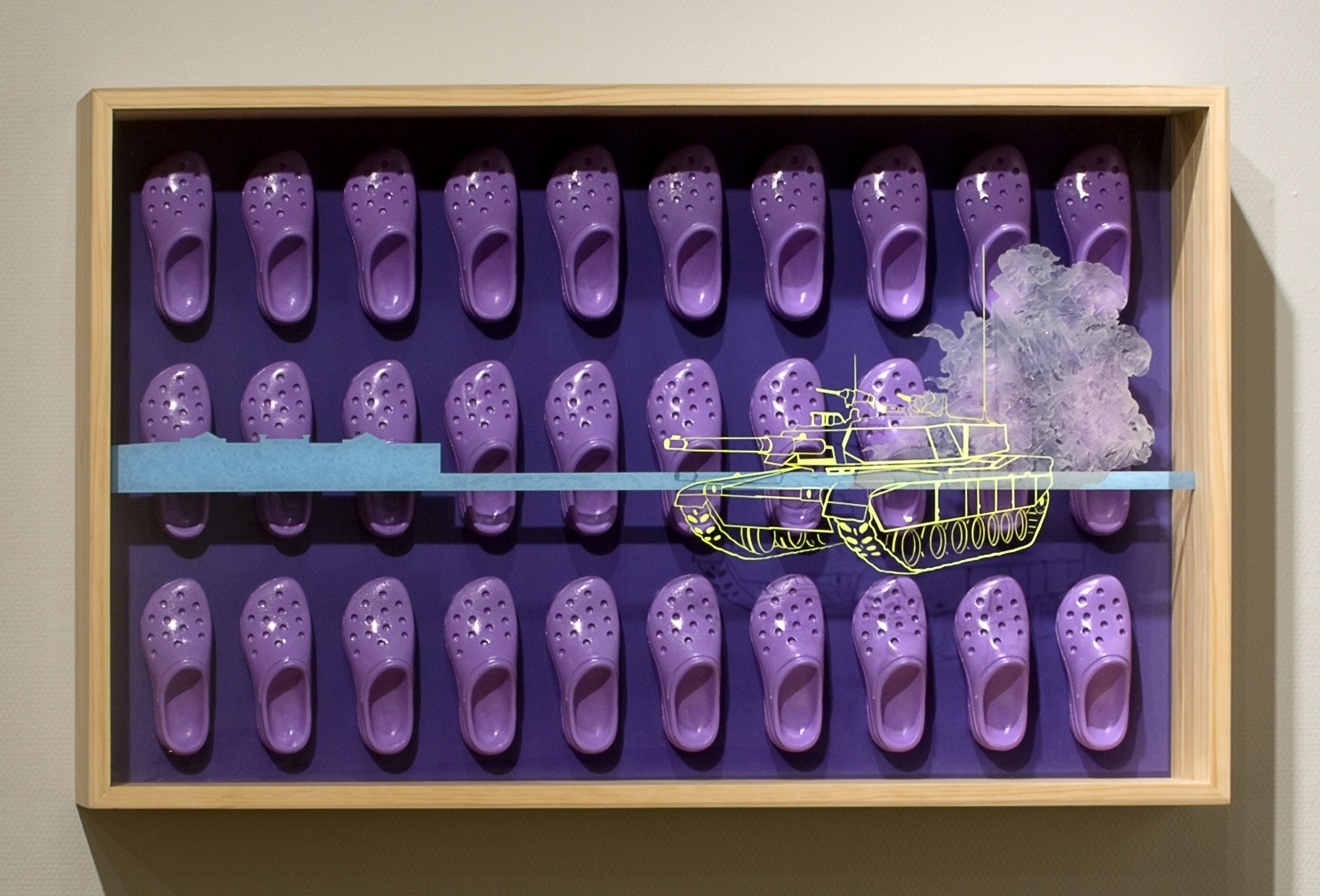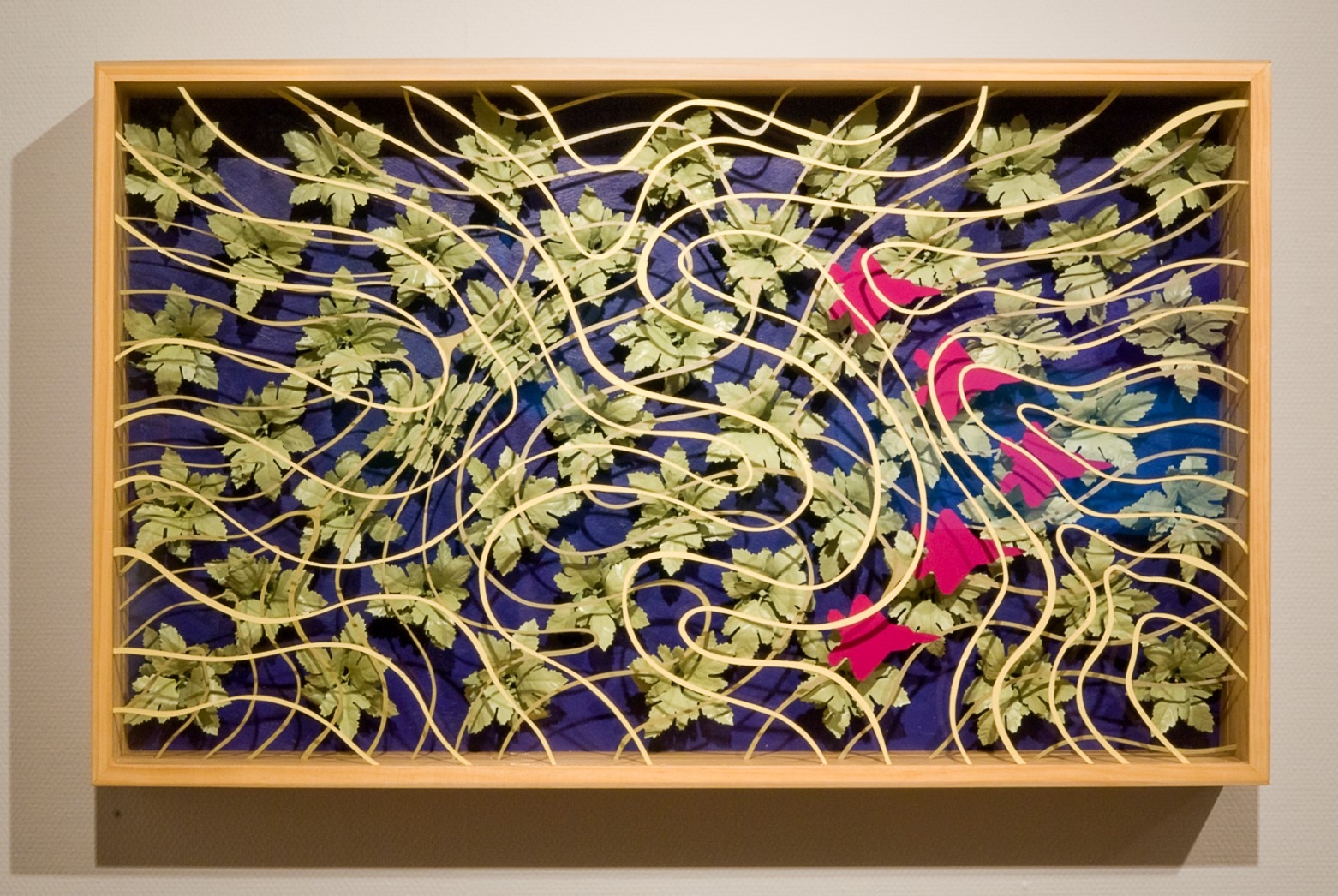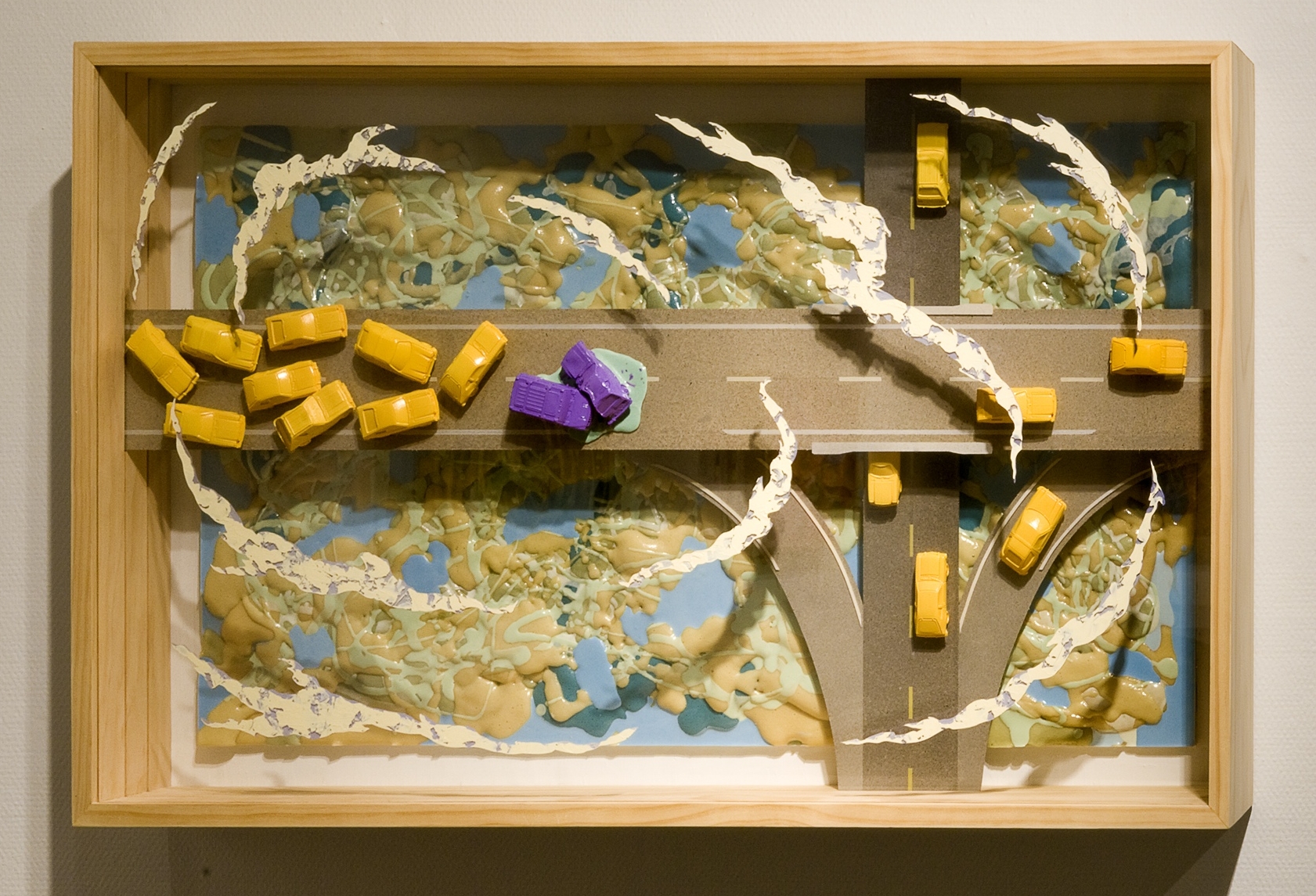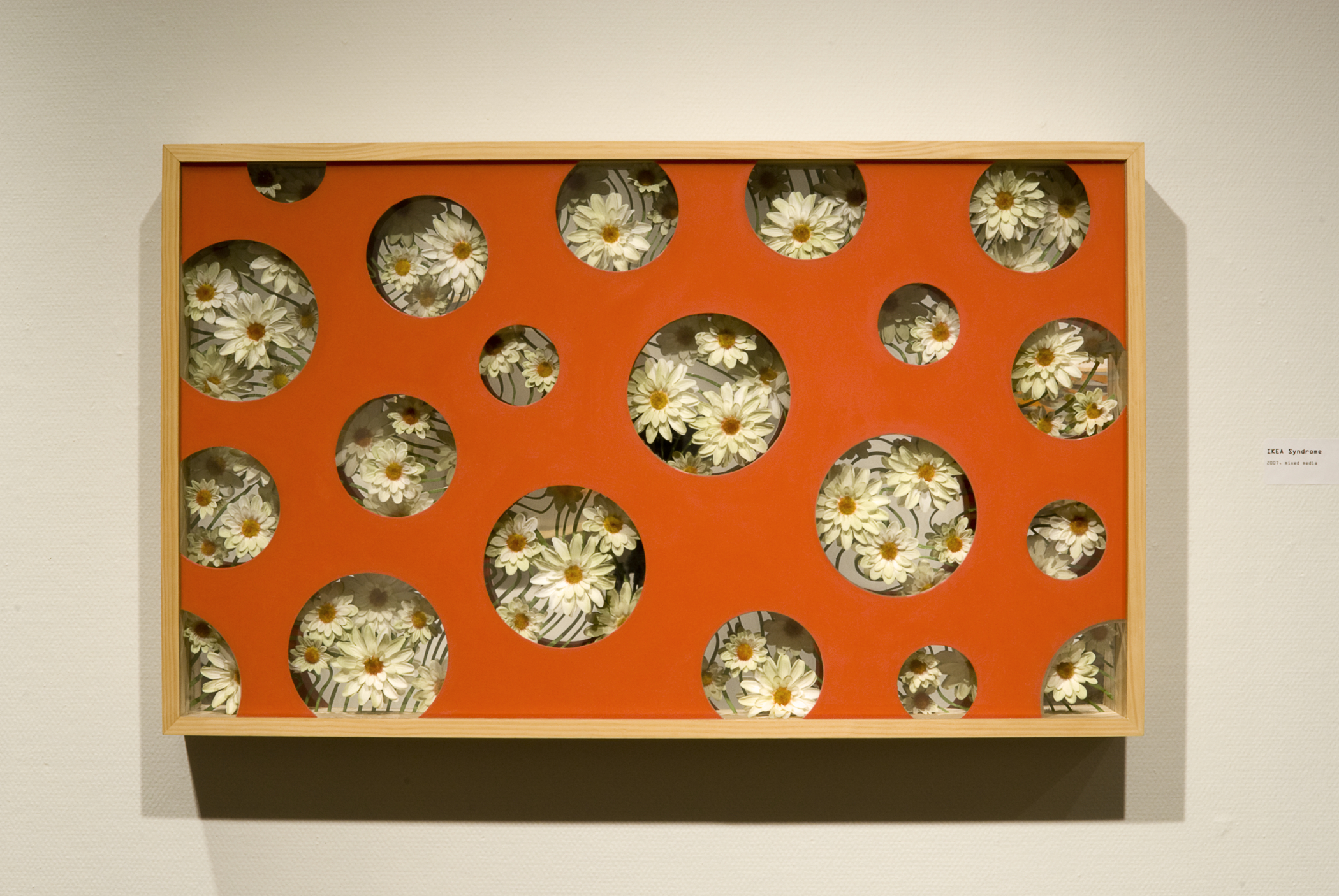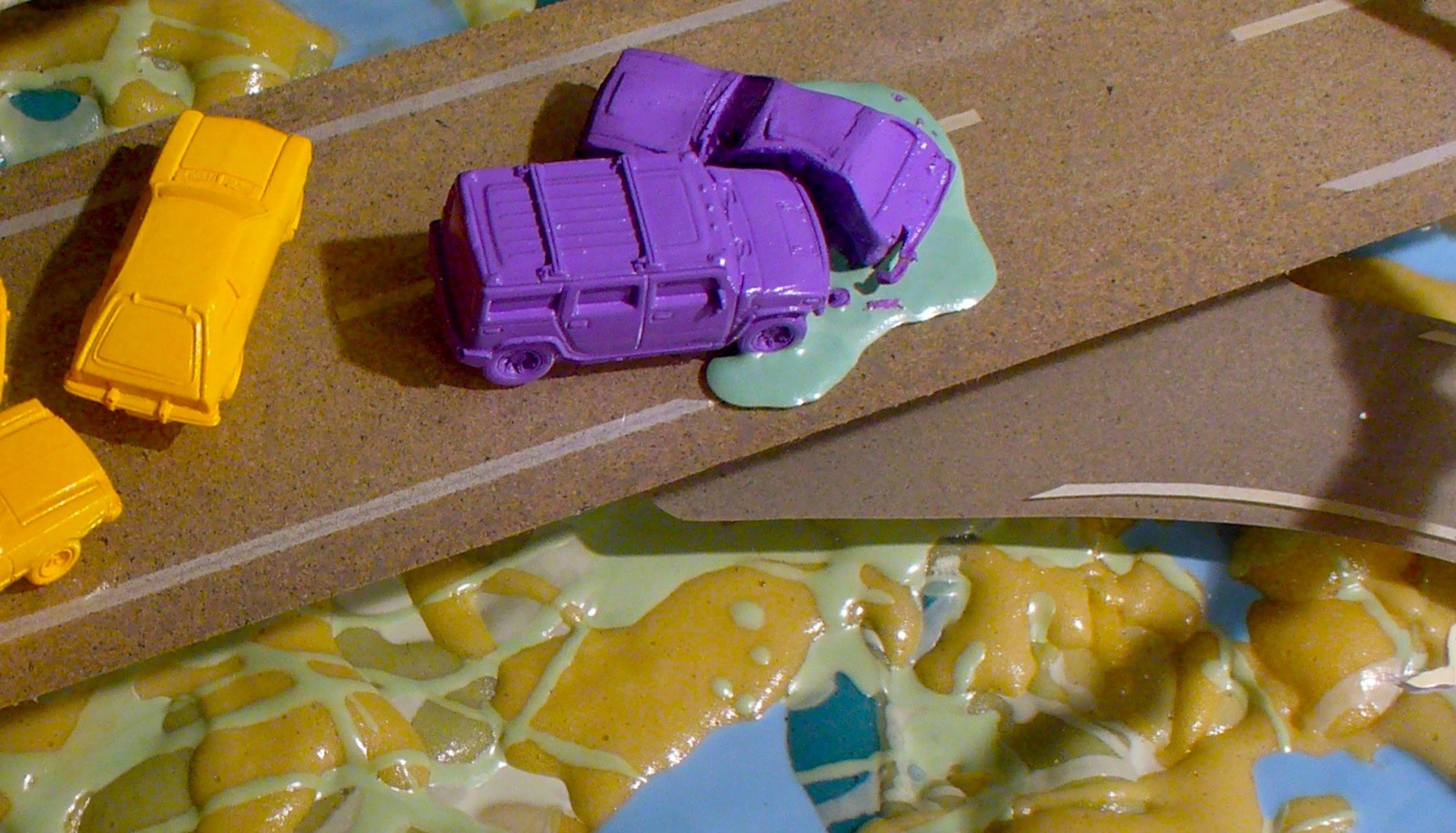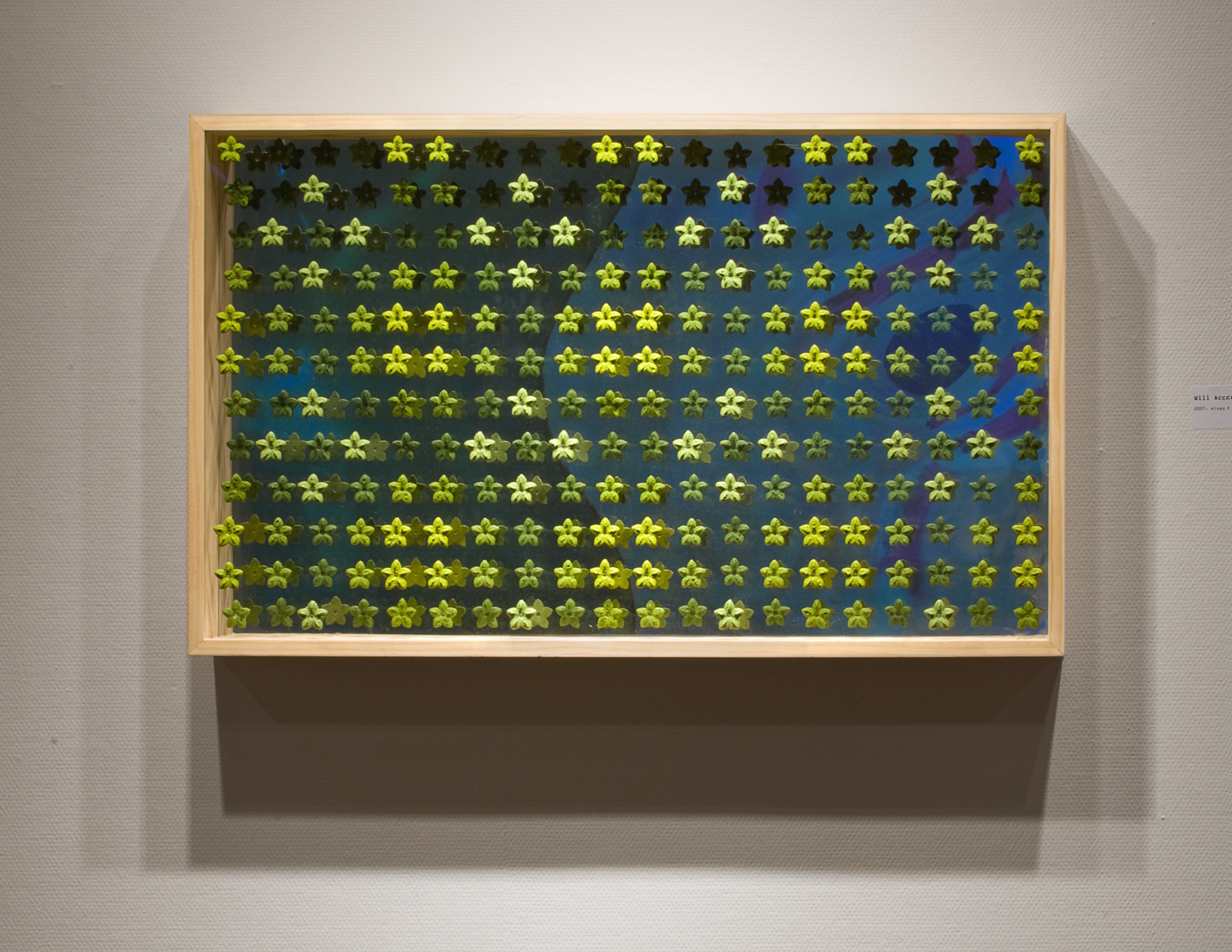Kitsch
John Swartwout:
Kitsch
The work of John Swartwout is apt to strike visitors as odd. Those of us committed to the discussions of the traditions of high art may at first feel stymied, for the value systems presented here seem at best, foreign, at worst, pretentiously bad taste. The latter phrase is the very definition of the term kitsch, used to describe clumsy, mass produced, cheesy merchandise or vapidly sentimental material. In a world where everything has it's place, what happens if by quirk of fate, kitsch it the stuff that fascinates and compels you? What if the realm of kitsch is where you find pathos and humor, affirmation and worth, heroism and hubris?
Swartwout's art belongs to social criticism, but it does so not by theoretical positioning, intellectual flailing, or political diatribe, but by emerging from within the visual idioms of global mass production. He deploys the irony and satire of an individual ow worldly experience trapped, as we all have been, in a War-Mart excursion. His work can be seen as a meditation on the pervasive nature of popular culture, it's continuously morphing nature, it's wildly disparate sources, its perversely conformist tendencies, and its oddly poetic materials. How, for instance, did camouflage, a functional aspect of warfare, become an international fashion component? How are we to comprehend that process, and how might we categorize the taste it epitomizes?
Swartwout's touch is wry and his humor, both gentle and absurd. He hopes to impart little slivers of truth in the rubble of existence. He is fascinated with the various unofficial, unconscious social structures he routinely perceives. As an independent filmmaker, his cinematic references are often to B grade values, with birds's eyes vistas and panoramic shots that fall into the purely incongruous.
As an artist who can cast innumerable replicas of the most inconsequential tidbits of debris, Swartwout understands well the thin line between creation and chaos, between destruction and order, between humor and parody. In German, the term kitsch is also a noun, one that refers to a shady trickster or a tool of deception. Hence, on work here has the canny capacity of station back at the viewer, recording its own banal, iconic experience and casting it on the wall. With kitsch, everyone gets appropriated and no one can escape,
Glenn Allison
Curator

